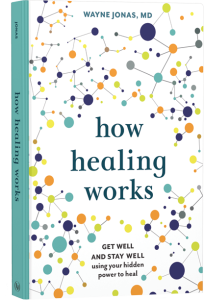Set yourself up with healthy habits for life
Being healthy means creating sensible habits that help you be at your best mentally and physically. This includes taking inventory of your mental health. How do you do that? Start by asking yourself a few questions. Which of the following four habits would you like to focus on a bit more during your day?
- Focus on a healthy, well-balanced diet – Avoid processed foods, fad diets, or other quick fast-loss schemes.
- Make physical exercise a habit – You don’t have to be a gym all day, every day, but try to fit in 30 minutes of cardio and strength training a day,
- Create healthy sleeping habits – This includes turning off blue-light devices at night so your brain can absorb the hormonal signals that it’s time to sleep.
- Self-care – Whether you meditate, practice yoga, or write down your feelings, managing your emotions and stress are an important part of your health.
Examining your self-identity
Starting new jobs, figuring out health care, and figuring out who you are now that you’re an “adult” can be a lot to take in. When you feel ungrounded in a period of transition, overwhelmed by options, and are comparing yourself to others, the who am I? question can loom large.
Therapeutic writing can help manage this. It is a kind of structured journal writing to encourage deeper and clearer reflection, processing, and discovery. Therapeutic writing can help you heal, grow, and thrive.
Feelings always have a physical side. Bottled-up feelings can manifest into physical issues. Putting your mental and physical health first can help you across all stages of life. Our tool for journaling about life transitions in your 20s is a good place to unpack those feelings.
How to take control of your physical health
Doctor’s appointments and visits may not be a popular topic on social media or something that seems as important as hitting deadlines as your career begins to thrive, but it is imperative. You may not need a full yearly physical but ask your doctor for their recommendations. Things to talk about and bring with you before attending your appointment include:
- Whether you are sexually active.
- Your plans for having children in the future, or not.
- Your family history.
- Past personal health history.
- Any health changes you need to make now.
Any past or lingering health issues, such as asthma or a heart condition you were born with, means it’s important to see a specialist regularly to prevent more serious (or expensive) future problems.
Dentist? Yes
You know you’re an adult when you make your own dentist appointments. The health of your teeth and gums can influence the health of your whole body. As an example, gum disease has been linked to heart disease. Infection can spread from your mouth to your heart over the years and trigger inflammation. You may not even know it is happening. This is one form of health care you definitely need.
What about health insurance?
Most Americans have health insurance through work or a spouse. You may have this or be on your parents’ plan, which is allowed until age 26.
You can also apply for insurance through www.healthcare.gov. There is no penalty if you choose to go without insurance, but a major health event—an accident, pregnancy, cancer—generally costs more than insurance does.
Once you have insurance, you’ll want to use that as the stimulus to finding the right doctor. Not all doctors accept all insurances, so be sure to check on the doctor’s website or call with this question.
Social health
Especially if you live alone, it’s tempting to spend your free time online. Unfortunately, research has shown that more than four hours of daily screen time is linked to moderate to severe depression.[i] You need real-life friends, and we recently talked about how friendships affect your body, mind, and spirit.
The counseling and psychological help website GoodTherapy.com has a helpful article on mental health issues to watch for in your 20s. A series called Adulting 101 from Intermountain Health describes how to make (non-virtual) friends as an adult.
Spiritual health
You may not be religious or consider yourself spiritual, but spirituality can be understood as seeking a sense of meaning, purpose, and connection to people, activities, and the universe around you. If you’re moving through your days on autopilot or wondering what life is all about, you may want to give your spiritual health some attention. Spiritual struggles about your life’s meaning and other issues can harm your mental health.[ii]
Feed your spirit by:
- Spending time in nature.
- Attending religious services.
- Listening to inspirational podcasts.
- Volunteering for a cause.
- Taking care of animals or people in need.
Spirituality gives you a sense of purpose and meaning beyond yourself. Learn more about the mental health benefits of spirituality. You can also read more about spiritual health in this post from the National Alliance on Mental Illness.
Get help if you’re struggling
If you find yourself frequently feeling sad or irritable, finding it hard to see positive things around you, or having trouble managing your emotions in general, daily writing in our journal tool could be a good place to help figure out what’s going on.
Therapy is also a great option. Read our blog “Finding and Working with a Therapist” to learn how to find a therapist that offers in-person and virtual options. You can also ask your primary care provider for a referral.
Be sure to check the mental health section of your insurance company’s website. Psychology Today can help you search a directory of therapists worldwide. Or you can browse by U.S. state at Find a Therapist.
If you have thoughts of harming yourself, call the National Suicide Prevention Lifeline at 1-800-273-8255.
No matter what you are working on or going through, loop in supportive friends and family members to help you stay focused, engaged, and hopeful on your path.
References
[i] Madhav KC, Sherchand SP, Sherchan S. Association between screen time and depression among US adults. Prev Med Rep. 2017;8:67-71. doi:10.1016/j.pmedr.2017.08.005
[ii] Shek DT. Spirituality as a positive youth development construct: a conceptual review. ScientificWorldJournal. 2012;2012:458953. doi:10.1100/2012/458953

Take Your Health Into Your Own Hands
Drawing on 40 years of research and patient care, Dr. Wayne Jonas explains how 80 percent of healing occurs organically and how to activate the healing process.

